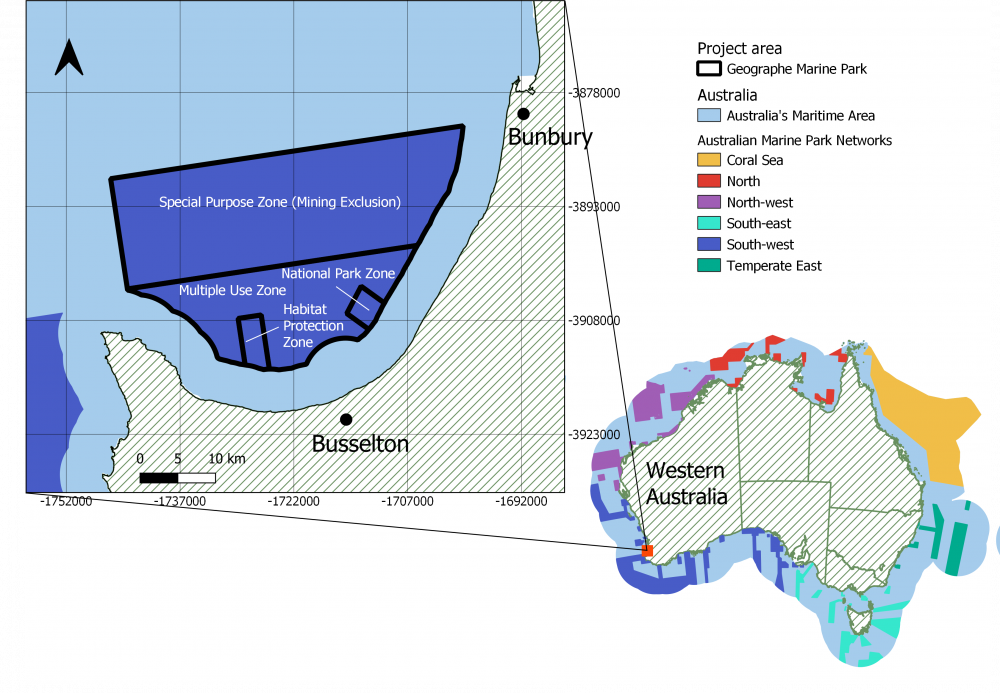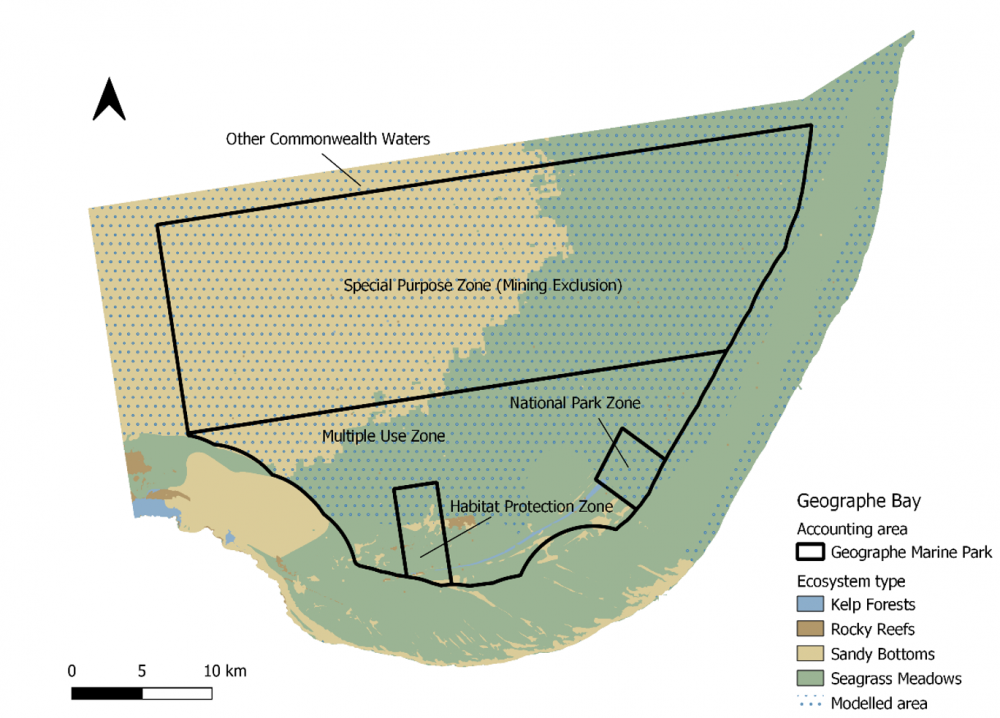Environmental-economic accounting for the multiple values of Geographe Marine Park
Environmental-economic accounting (EEA) is a powerful tool that enables policy and investment decisions to be made based on whole system analysis which integrates environmental, economic and social data.
A pilot accounting project was undertaken for Geographe Marine Park. The EEA examined the location and condition of ecosystems, such as rocky reefs and seagrasses, and the value of ecosystem services, like commercial and recreational fishing and tourism.
Where
Geographe Marine Park, South-west Marine Parks Network

Who
Institute for the Development of Environmental-Economic Accounting (IDEEA Group) with funding provided by the Department of Agriculture, Water and the Environment.
When
2020
Why
Australia is contributing to the advancement of environmental-economic accounting by implementing a National Strategy and Action plan and supporting capacity building in the region. The Ocean accounting pilot for Geographe Marine Park supports implementation of the National Strategy as well as Australia’s participation in the High Level Panel for a Sustainable Ocean Economy.
The objectives of the pilot project were to:
- provide structured environmental, social and economic information to inform ongoing management of Geographe Marine Park
- improve understanding of how ocean accounts can help us to sustainably manage the world’s marine resources
- trial the United Nations Technical Guidance on Ocean Accounting for Sustainable Development in an Australian context.
The environmental-economic ecosystem accounting framework was used to guide spatial and statistical analysis for Geographe Marine Park This includes the extent and condition of natural assets, and the services and benefits that they provide. Existing data was organised in a way that integrates the environmental and economic systems linked to the marine park. The shell ocean account tables and the approach to compiling the accounts for Geographe Marine Park are presented in the Ocean Accounting for Geographe Marine Park Methodologies Assessment report.

What did we learn?
The ocean accounting pilot project estimated the extent and condition of seagrass, sandy bottom, rocky reef and kelp ecosystems in Geographe Marine Park, the flow and monetary value of ecosystem services including fish nursery services, commercial and recreational fisheries, carbon stocks and sequestration, whale watching tourism and vessel use, as well as some potential human induced pressures in the marine park.
Seagrass meadows for example were estimated to make up over 50 percent of the benthic area of Geographe Marine Park (55,139 ha of 96,477 ha total) and:
- store more than 6 million tonnes of carbon, and sequester over 27,000 tonnes each year
- provide nursery services to key fish species at different quantities (6,227 kg tarwhine, 3,976 kg of sea mullet and 809 kg of King George whiting per hectare of seagrass meadow)
- contribute economically through recreational and commercial fishing activity.
Ecosystems within Geographe Marine Park were further estimated to contribute more than $300,000 in 2019 to the gross operating surplus of the local economy through whale watching tourism and commercial fishing.

Figure: Known and modelled ecosystem extent, Geographe Bay, 2014
What next?
This project demonstrates that there is sufficient information to scale up some ocean accounts nationally, such as ecosystem extent and carbon ecosystem service accounts. However, changes in scale are likely to change the purpose and use of accounts.
The project has identified that, for application at a local scale, accounts should be further targeted to specific management issues of interest, and improvements to the resolution and frequency of existing data is required.
The authors recommend targeted investment in data collection, capacity building and research to support a national rollout of ocean accounts.
Related data and publications
The ocean accounting pilot project reports are located at the Department of Agriculture, Water and the Environment’s EEA website.
